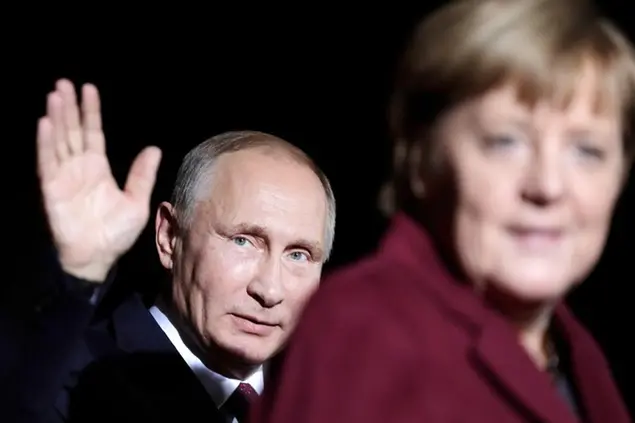-
Berlino spende per la difesa solo l’1,38 per cento del Pil rispetto al 2 per cento minimo promesso agli alleati. La Germania ha fatto pressioni a Washington per fermare le sanzioni più dure e trovare un’intesa con il Cremlino.
-
Per Marcel Dirsus, analista politico tedesco presso l'Institute for Security Policy dell’università di Kiel, «l'intera narrativa della politica estera tedesca che ha puntato tutto sul cambiamento attraverso il commercio» è completamente fallita.
-
Eppure Berlino, per 16 anni con Angela Merkel e prima con Gerhard Schröder, esponente di punta del partito filorusso in Germania, ha continuato a commerciare e a credere di poter ricondurre Putin a più miti consigli. Non è stato così: e forse è giunta l’ora di fare ammenda pubblica di questa pericolosa illusione.
Debole nella Nato e tenera con Putin: le responsabilità della Germania

25 febbraio 2022 • 18:04